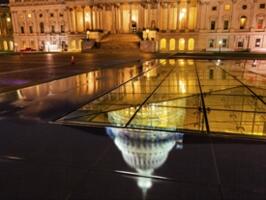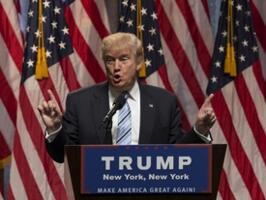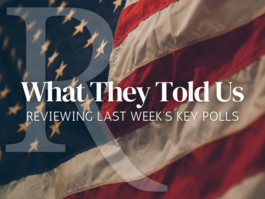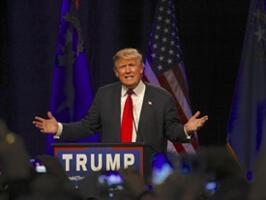Voters Suspect U.S.-China Relations Will Get Worse
Most voters think the U.S. government gives China a pass for its bad behavior because of its economic clout, but many think the U.S.-China relationship is about to change for the worse.

Most voters think the U.S. government gives China a pass for its bad behavior because of its economic clout, but many think the U.S.-China relationship is about to change for the worse.

When President-elect Donald Trump takes the oath of office eight days from now, he will be completing a remarkable journey, going from private citizen to the highest elected office in the nation without any elected stop in between. But while Trump is, to put it mildly, a unique figure in presidential politics, his journey is one that is we are increasingly seeing on a smaller scale at the gubernatorial level.

A sizable number of voters continue to view Russia as an enemy of the United States, but President-elect Donald Trump hopes to improve that relationship. Republicans are more confident than others that he'll succeed.

Following Meryl Streep's Golden Globes speech criticizing incoming President Donald Trump, most Americans see Hollywood celebrities as politically to the left of them and dismiss the stars as poor role models.

Now that I no longer do a weekly TV show, I have more time to read my local paper. Sadly, that's The New York Times.

Voters are closely divided over whether the U.S. Senate should rubber stamp a president’s Cabinet nominees or pick and choose the ones it likes best. As usual these days, a voter’s political affiliation makes a world of difference.

Like tired old racists clinging to their discredited past and divisive politics, Democrats wheezed exhaustively on their racial dogwhistles Tuesday in their increasingly futile bid to derail Sen. Jeff Sessions’ nomination to become the next attorney general.

It's only the second week of 2017, but it's already been a banner year for preening liberals on cable TV who are hell-bent on self-immolation in the name of proving everyone else's moral inferiority.

President-elect Trump urged the Republican-led Congress this week to rapidly repeal Obamacare and pass a suitable replacement "very quickly or simultaneously." Few voters support the health care law as is, but most strongly agree with Trump that Congress needs to replace it right away.

As Congress and the next president wrestle with what to do with Obamacare, many Americans continue to feel the pinch of high health care costs.

With a new Congress and a new president intent on repealing Obamacare, more voters than ever are calling for fixing it rather than throwing it out completely. Most expect major changes in the trouble-plagued national health care law in the near future, though.

Though every Republican in Congress voted against the Iran nuclear deal, "Tearing it up ... is not going to happen," says Sen. Bob Corker, chairman of the Foreign Relations Committee.

Thirty-one percent (31%) of Likely U.S. Voters think the country is heading in the right direction, according to a new Rasmussen Reports national telephone and online survey for the week ending January 5.

As the debate over Russian hacking efforts during the presidential campaign continues, voters here generally approve of the job U.S. intelligence agencies are doing but also suspect that they play politics.

Most voters share the views of the president and the party coming to power, but Republicans identify a lot more with Donald Trump than with the GOP Congress.

President Obama’s flurry of last-minute domestic decisions and his foreign policy jabs at Israel and Russia have some complaining that he’s deliberately creating problems for his successor.

"There's no savior out there." That's a line from "Lord's Prayer," a song written by TV Smith for the Lords of the Church, a band that trafficked in 1980s melodic punk. Here's some more:

Voters aren’t sure if the new Congress will be an improvement on the last one, but most want it to cooperate with President Trump as much as possible.

"As we begin 2017, the most urgent threat to liberal democracy is not autocracy," writes William Galston of The Wall Street Journal, "it is illiberal democracy."

President Barack Obama went up to Capitol Hill on Wednesday to counsel congressional Democrats on how to save Obamacare. Or at least that's how his visit was billed.